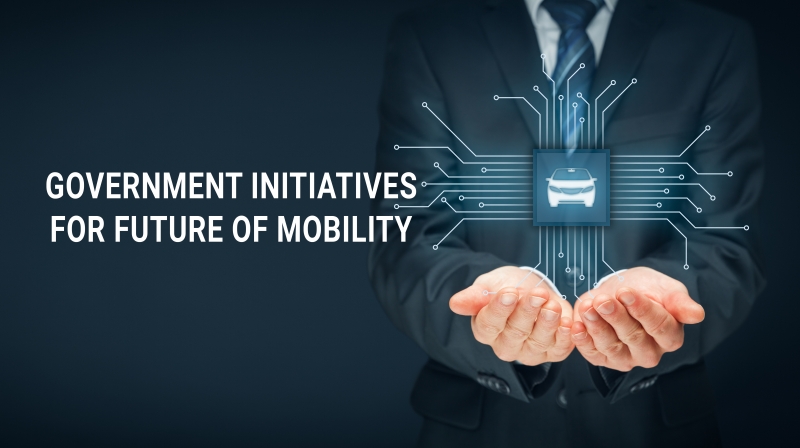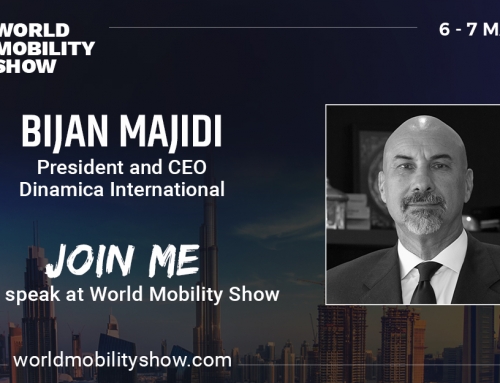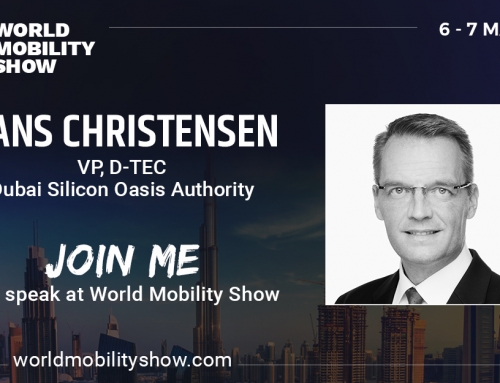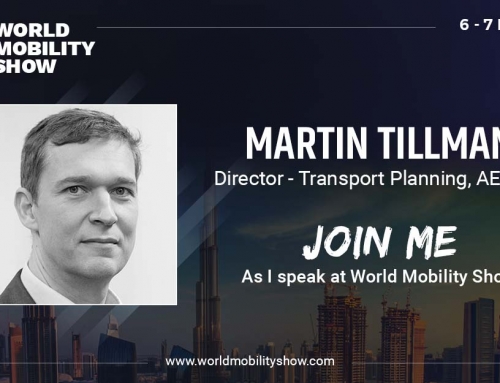The world is standing at the cusp of change with revolutionary technologies like blockchain and AI enhancing industries, the focus of which has now also shifted onto radicalising the mobility sector. Transportation today accounts for close to 19% of the world’s energy consumption. As nations tackle congestion issues and fast depleting resources, governments around the world are opening their doors to new business models that will help them restructure their transportation network.
What Dubai is doing for the future of mobility?
Being the symbol of change in the contemporary world, it is no surprise that the UAE ranks eighth in the list of countries most prepared for the advent of autonomous vehicles. Leading the mobility shift, the UAE government has turned towards advanced mobility in a bid to find an alternative to their decreasing oil and gas resources.
The Road and Transport Authority (RTA) has announced ‘The Dubai Autonomous Transportation Strategy’, an initiative that will ensure that 25% of the total transportation in Dubai will shift to autonomous mode by 2030, saving AED 22 Billion for the UAE government. The strategy is also said to generate AED 18 Billion in economic returns and will help save almost 900 Million AED annually by cutting transportation costs in the city.
By 2023, the RTA has also strategised to collaborate with General Civil Aviation Authority and Dubai Civil Aviation Authority to commercially operationalise autonomous aerial vehicle (AAV) services. The pilot project for these AAV was already conducted in 2014 by Dubai’s RTA along with the Chinese company Beijing Yi-Hang Creation Science & technology Co.
Working with private players and pre-established transportation systems, Dubai’s RTA has also signed an agreement with the Virgin Group in February 2018 to introduce the Hyperloop pods within the next five years. An idea first proposed by Elon Musk in 2013, the Hyperloop pods can travel at the speed of 1200 kilometers per hour, making commuting not only faster, but also more environment friendly. Based on an electric tube, these pods will take a mere 12 minutes to connect the two biggest cities of UAE, Dubai and Abu Dhabi, covering a distance of almost 139.4 kilometers.
The Dubai government is also ardently looking for solutions to tackle problems like last mile connectivity and road congestion. While the world has almost 1.015 Billion cars on the road this year, Dubai houses almost 2.2 million of them!
Mobility Areas Receiving Government Aids
- Investments:
The Dubai government has proposed 185 projects in the transport sector under the ‘Smart Dubai’ project. The project that includes rail networks, marine ventures, and aviation plans, is worth USD 32 Billion.
- Regulations:
In August 2017, the Emirates Authority for Standardisation and Metrology (ESMA) launched a project in Dubai under Vision 2021, to develop a draft for technical rules and regulations for self-driving vehicles.
- Infrastructure:
The government is supporting multiple infrastructure projects and regular research and update on road markings, district and province division and Right of Way-oriented designs
Government initiatives around the world
Other countries around the world are also now turning towards modernising mobility. In the European continent, UK’s Road to Zero Strategy is one such initiative where the government plans to end the sale of petrol and diesel based vehicles by 2040. Following the project, UK also pledged to fund 6 projects worth £12.1 million, which will focus on modelling and simulating ‘Connected and Autonomous Vehicles’. It is estimated that by 2035, UK’s autonomous vehicles sales will be worth £52 billion.
Besides the UK, Sweden’s transportation has also undergone a paradigm shift. The countries ‘Drive Sweden’ takes a new approach to mobility in the Nordic region. The project works along with the UN Road Safety Working Group to establish a safe yet cost-effective transportation system. Working on similar lines, Japan’s Ministry of Economy, Trade and Industry (METI) joined hands with the Ministry of Land, Infrastructure, Transport and Tourism (MLIT) to discuss business strategies for Automated Driving, a project that encourages Japan’s contribution to a practical and profitable automobile system.
How Businesses will bank on opportunities
- Dubai government along with Masdar, a subsidiary of the Mubadala Company, has joined hands to pioneer sustainable transportation for Dubai under ‘Project Masdar’.
- Virgin group along with the Road and Transport Authority (RTA) of Dubai have signed up a project to introduce Hyperloop Pods that will make transportation easier for the citizens
- Companies like 3M and Society of Manufacturers of Electric Vehicles (SMEV) among others have also partnered with the Dubai government to introduce new-age transportation network under the ‘Smart City of the Future’ initiative






Leave A Comment